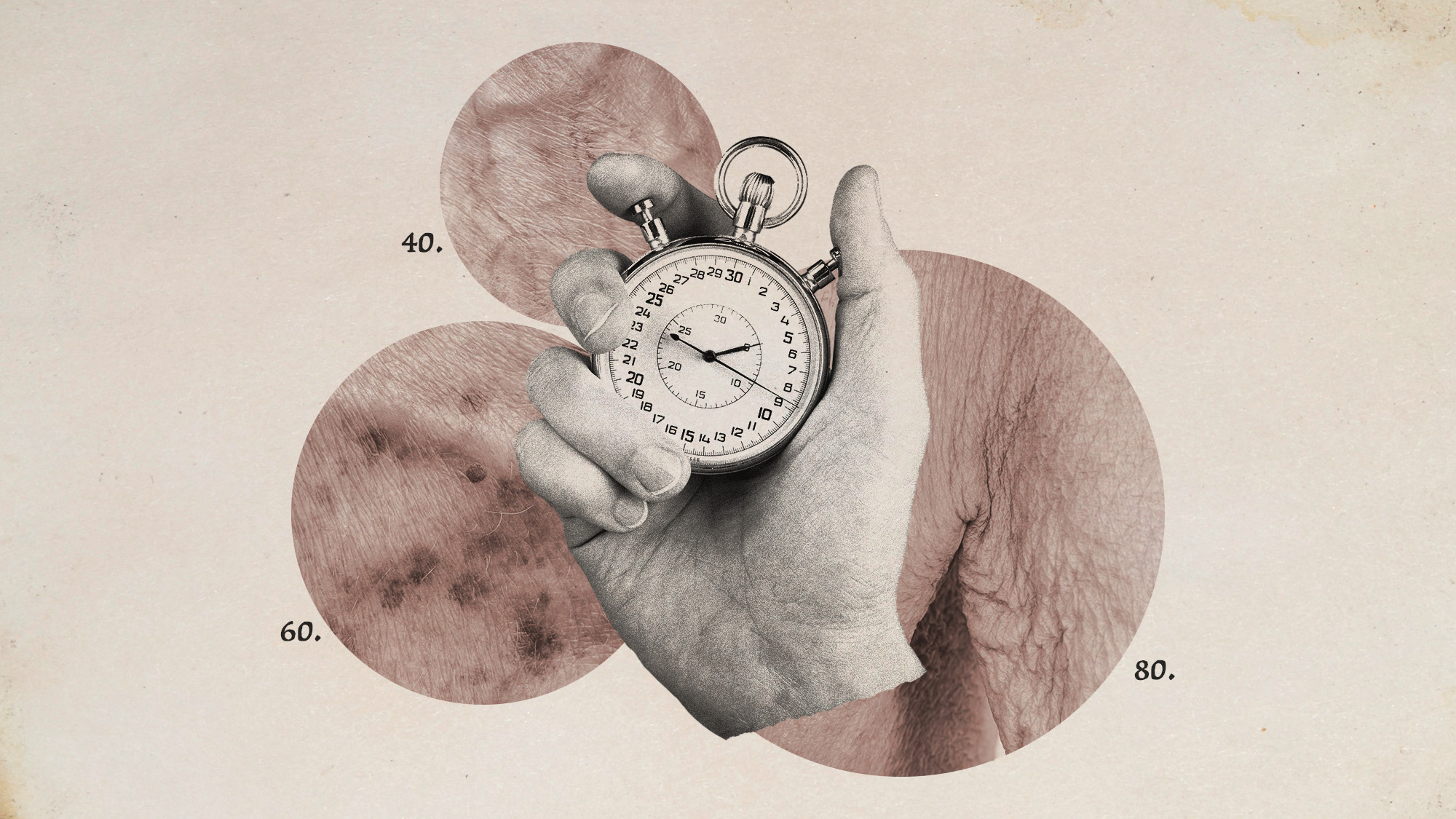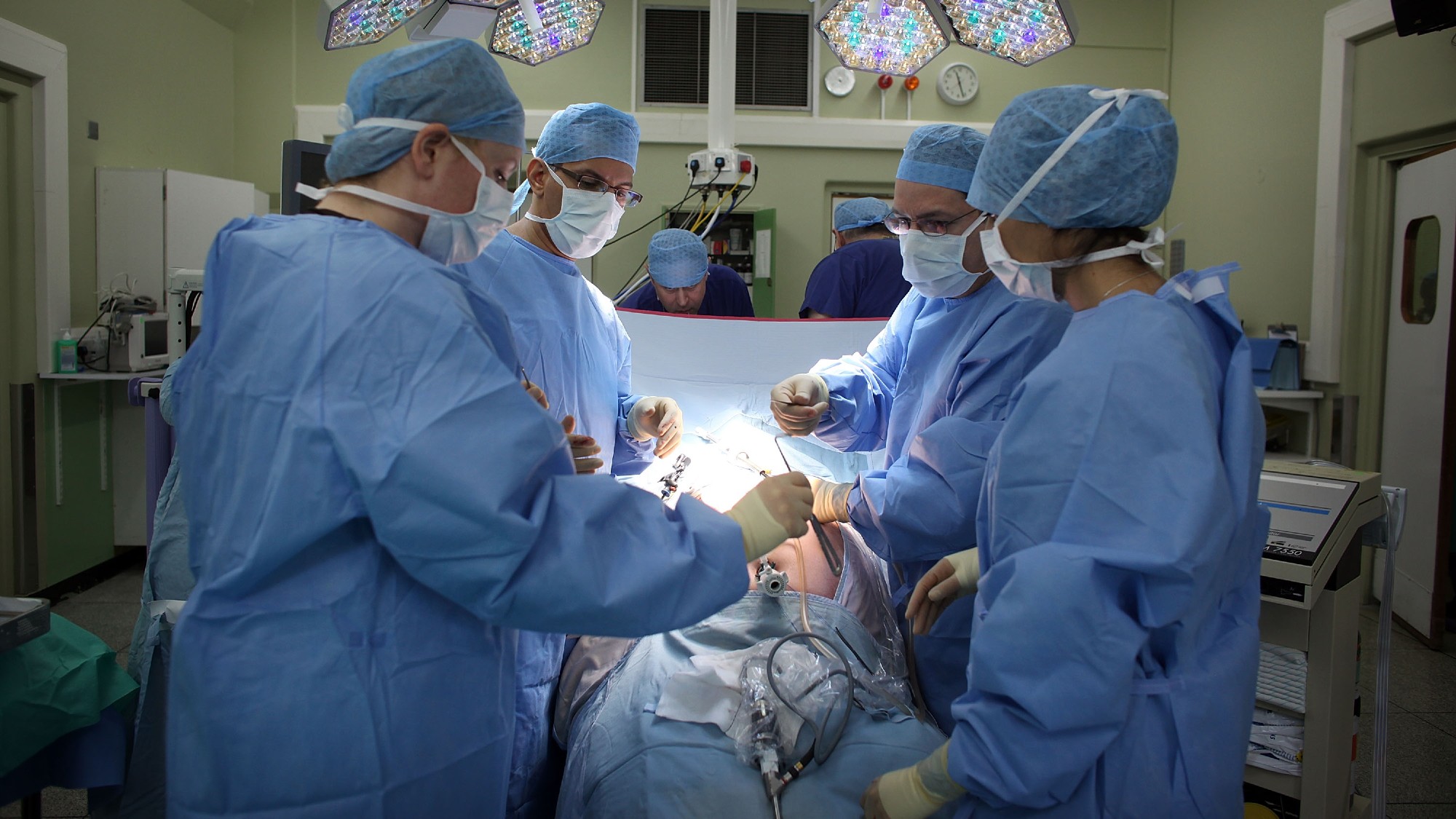Why your body ages rapidly in two 'bursts'
Scientists have found that ageing increases in our mid-40s and 60s

A free daily email with the biggest news stories of the day – and the best features from TheWeek.com
You are now subscribed
Your newsletter sign-up was successful
Have you ever woken up in the morning and suddenly felt old? There might be a good reason. A series of studies has found that, rather than ageing gradually on a linear timescale, we might have significant "bursts" of getting old during our adult years, said National Geographic.
'Provocative' findings
These two bursts usually happen in our mid-40s and our early-60s, according to a research team at Stanford University, who tracked thousands of different molecules in people aged 25 to 75. The researchers found that 81% of the molecules didn't change continuously, as you'd expect, but actually transformed significantly around certain ages.
Their "provocative" findings seem to "fly in the face" of current models of ageing, said David Sinclair, a molecular geneticist, longevity researcher, and professor at Harvard Medical School.
The Week
Escape your echo chamber. Get the facts behind the news, plus analysis from multiple perspectives.

Sign up for The Week's Free Newsletters
From our morning news briefing to a weekly Good News Newsletter, get the best of The Week delivered directly to your inbox.
From our morning news briefing to a weekly Good News Newsletter, get the best of The Week delivered directly to your inbox.
A separate study by a team in Germany last year found that sudden chemical modifications to DNA occurred in mice in early to mid-life and again in mid to late life, hinting that there were "three discrete stages of ageing", said The New York Times. And a 2019 analysis, which examined the blood plasma of over 4,000 people, found there were "significant jumps" in concentrations of proteins associated with ageing in the fourth, seventh and eighth decades of life.
'Steep uptick'
This "sudden ageing" can come with "an acceleration in muscle wastage and skin decline", said New Scientist, along with an inability to metabolise alcohol, a swift dwindling of immune cells, and substantial increases in the risk of cardiovascular disease and of dying.
Although none of this sounds particularly enjoyable, the various findings "don't have to make you dread hitting your 40s and 60s", said National Geographic, because understanding "how and when we age" can help experts and the general public take "specific steps to prevent or at least prepare for" some of the "most undesirable" aspects of the process.
The pattern "fits with previous evidence" that the threat of many age-related diseases does not "increase incrementally", said The Guardian. Conditions such as Alzheimer's and cardiovascular disease tend to show a "steep uptick" after 60.
A free daily email with the biggest news stories of the day – and the best features from TheWeek.com
There is a note of caution to attach to the Stanford findings, said Sinclair, as other studies have found that people often experience a "mid-life crisis" in their late-30s and early-40s or a "late-life crisis" in their late-50s and early-60s – the two periods linked to the ageing "bursts".
To put it another way, it's possible "associated psychological and lifestyle changes may be responsible for these changes in ageing and not due to our inherent biology".
Chas Newkey-Burden has been part of The Week Digital team for more than a decade and a journalist for 25 years, starting out on the irreverent football weekly 90 Minutes, before moving to lifestyle magazines Loaded and Attitude. He was a columnist for The Big Issue and landed a world exclusive with David Beckham that became the weekly magazine’s bestselling issue. He now writes regularly for The Guardian, The Telegraph, The Independent, Metro, FourFourTwo and the i new site. He is also the author of a number of non-fiction books.
-
 Health insurance: Premiums soar as ACA subsidies end
Health insurance: Premiums soar as ACA subsidies endFeature 1.4 million people have dropped coverage
-
 Anthropic: AI triggers the ‘SaaSpocalypse’
Anthropic: AI triggers the ‘SaaSpocalypse’Feature A grim reaper for software services?
-
 NIH director Bhattacharya tapped as acting CDC head
NIH director Bhattacharya tapped as acting CDC headSpeed Read Jay Bhattacharya, a critic of the CDC’s Covid-19 response, will now lead the Centers for Disease Control and Prevention
-
 Growing a brain in the lab
Growing a brain in the labFeature It's a tiny version of a developing human cerebral cortex
-
 Mixed nuts: RFK Jr.’s new nutrition guidelines receive uneven reviews
Mixed nuts: RFK Jr.’s new nutrition guidelines receive uneven reviewsTalking Points The guidelines emphasize red meat and full-fat dairy
-
 Trump HHS slashes advised child vaccinations
Trump HHS slashes advised child vaccinationsSpeed Read In a widely condemned move, the CDC will now recommend that children get vaccinated against 11 communicable diseases, not 17
-
 The truth about vitamin supplements
The truth about vitamin supplementsThe Explainer UK industry worth £559 million but scientific evidence of health benefits is ‘complicated’
-
 Health: Will Kennedy dismantle U.S. immunization policy?
Health: Will Kennedy dismantle U.S. immunization policy?Feature ‘America’s vaccine playbook is being rewritten by people who don’t believe in them’
-
 Choline: the ‘under-appreciated’ nutrient
Choline: the ‘under-appreciated’ nutrientThe Explainer Studies link choline levels to accelerated ageing, anxiety, memory function and more
-
 How music can help recovery from surgery
How music can help recovery from surgeryUnder The Radar A ‘few gentle notes’ can make a difference to the body during medical procedures
-
 Vaccine critic quietly named CDC’s No. 2 official
Vaccine critic quietly named CDC’s No. 2 officialSpeed Read Dr. Ralph Abraham joins another prominent vaccine critic, HHS Secretary Robert F. Kennedy Jr.